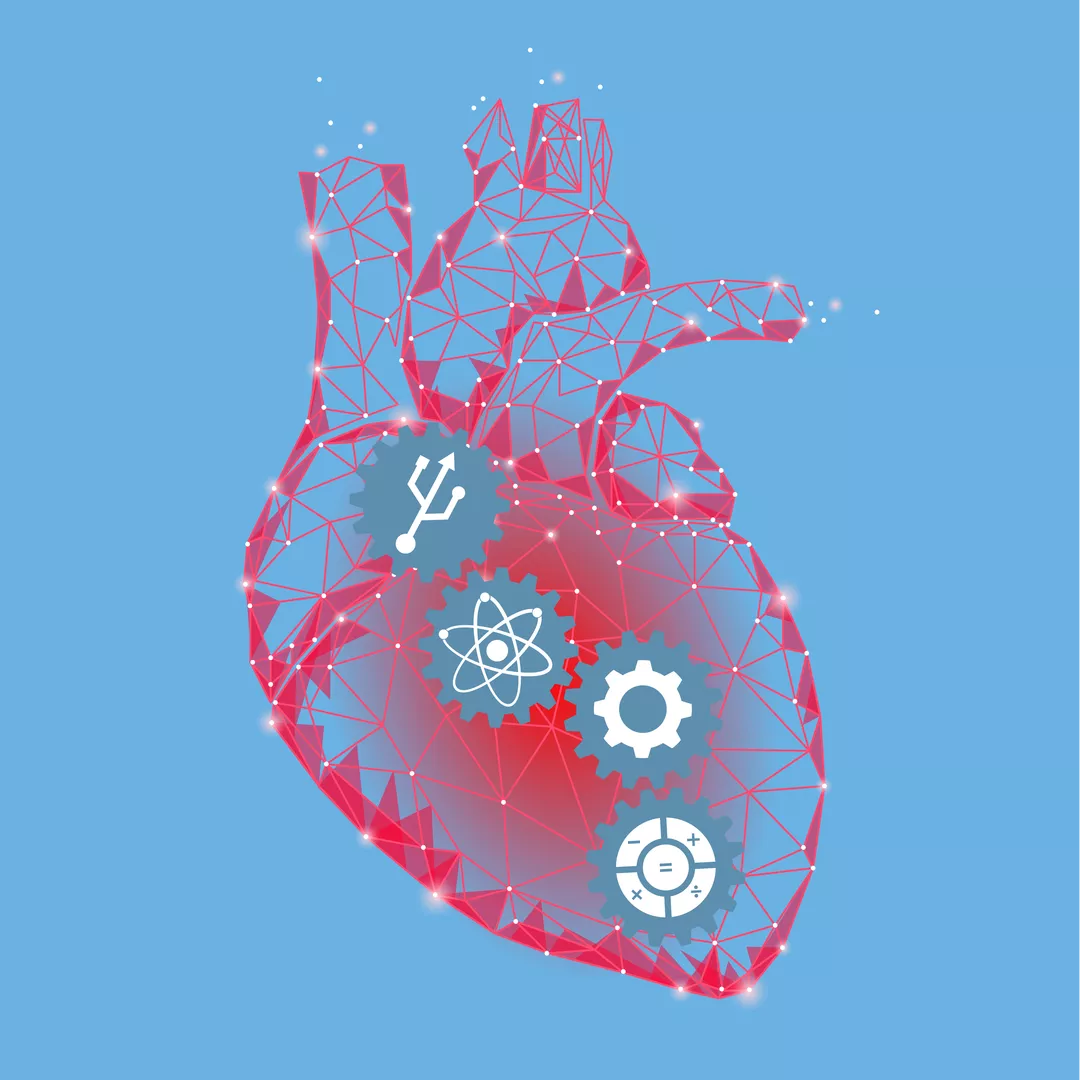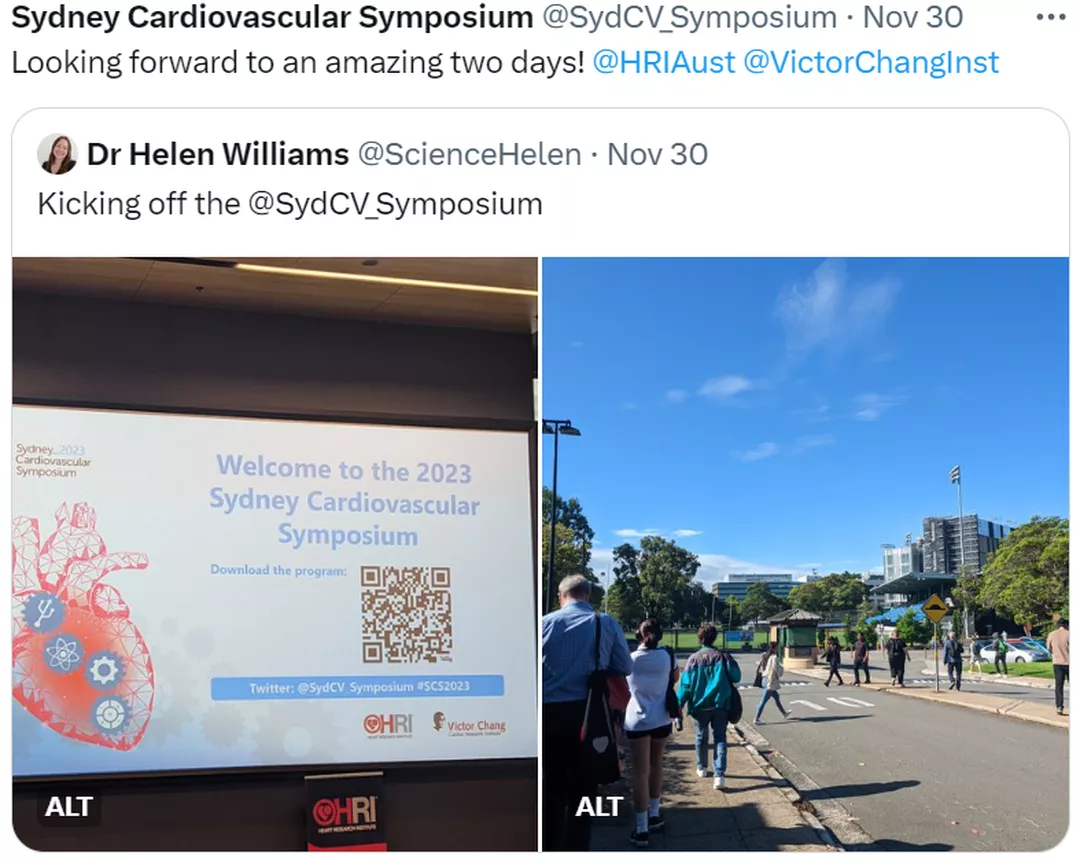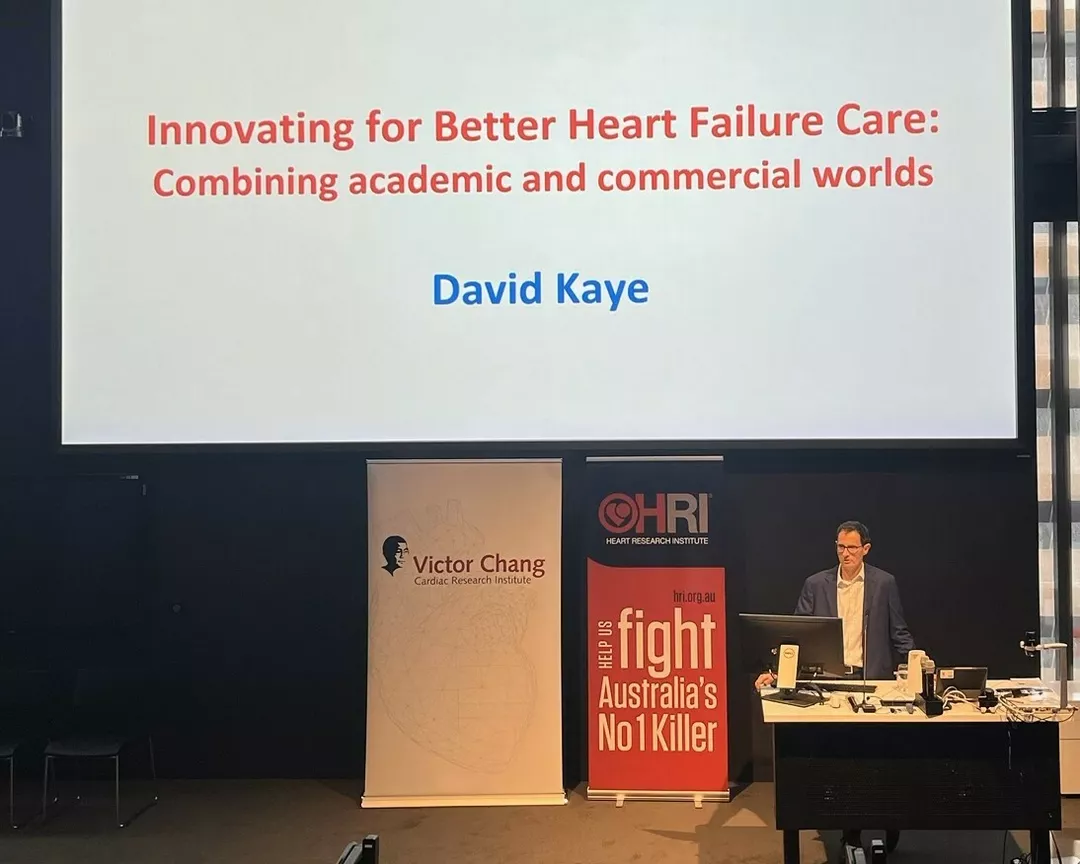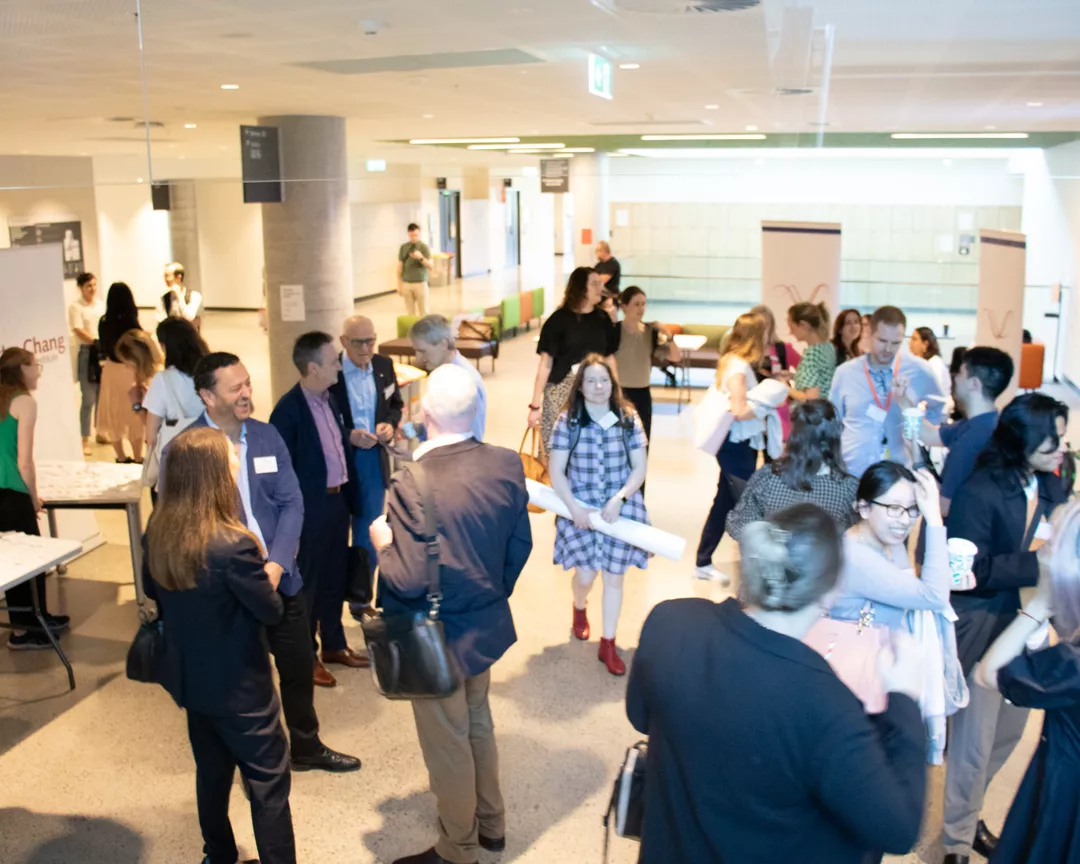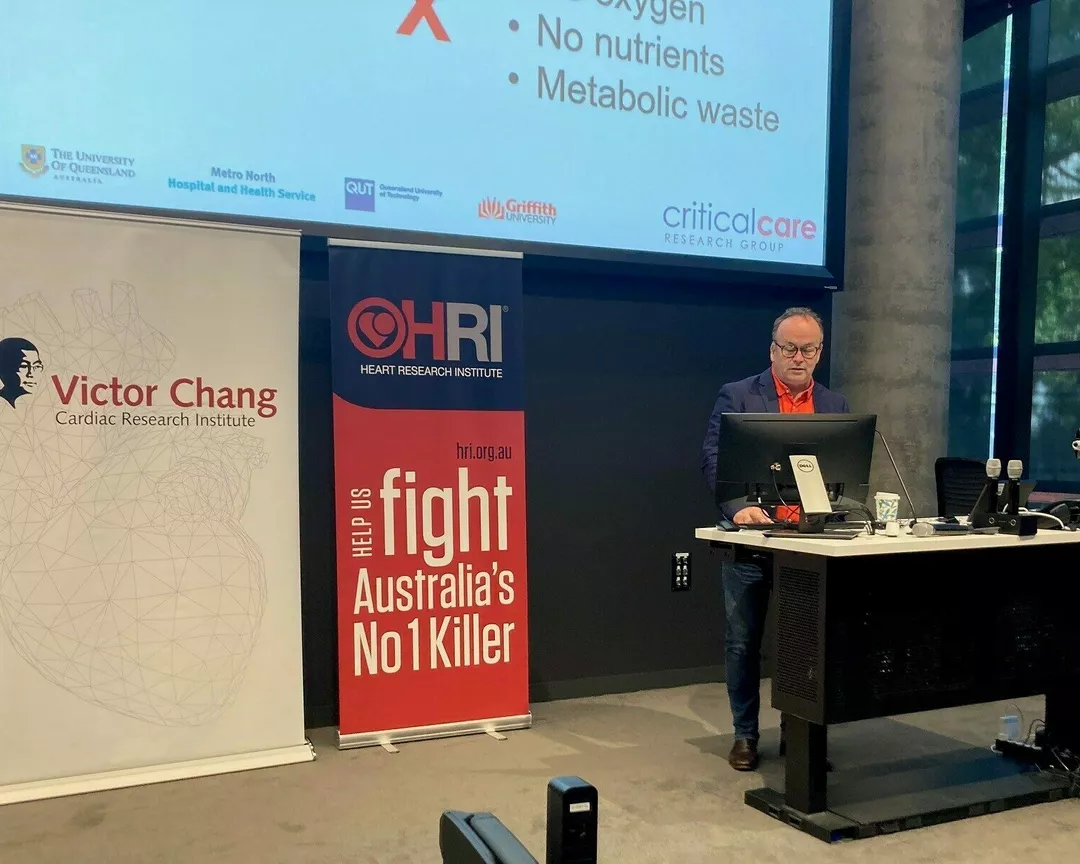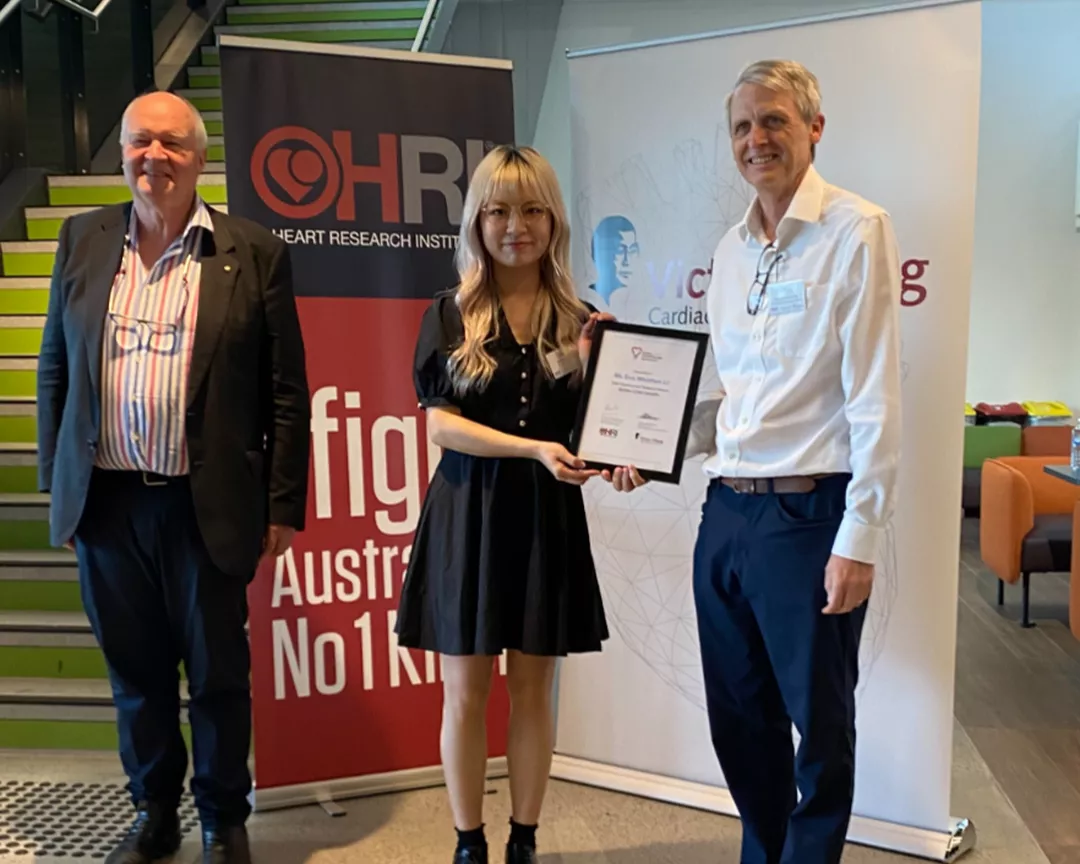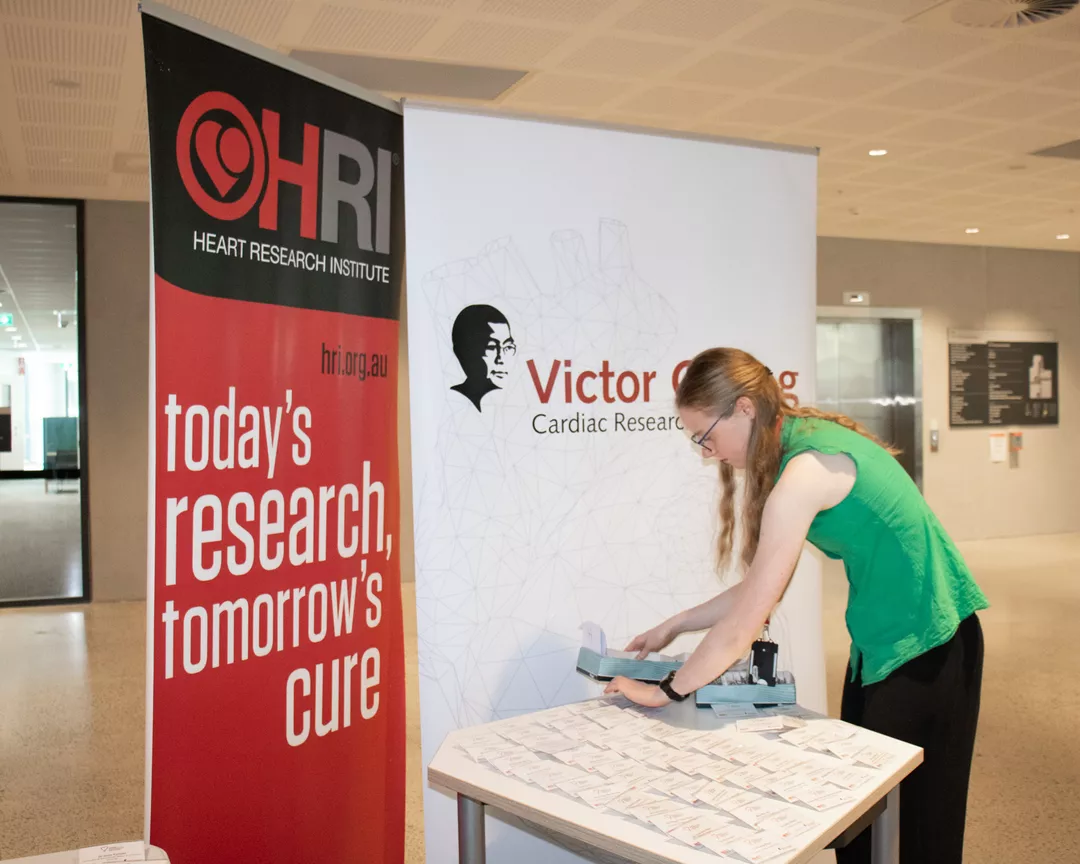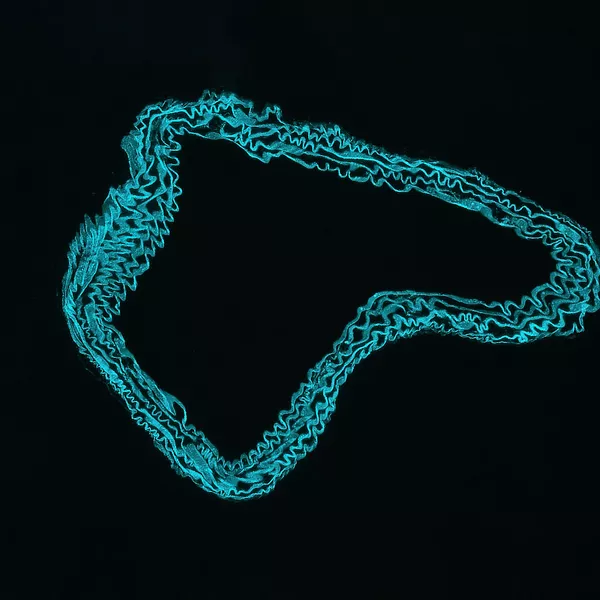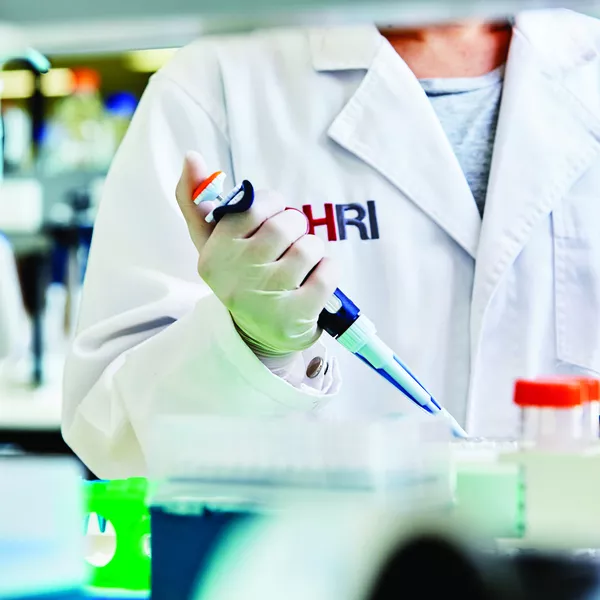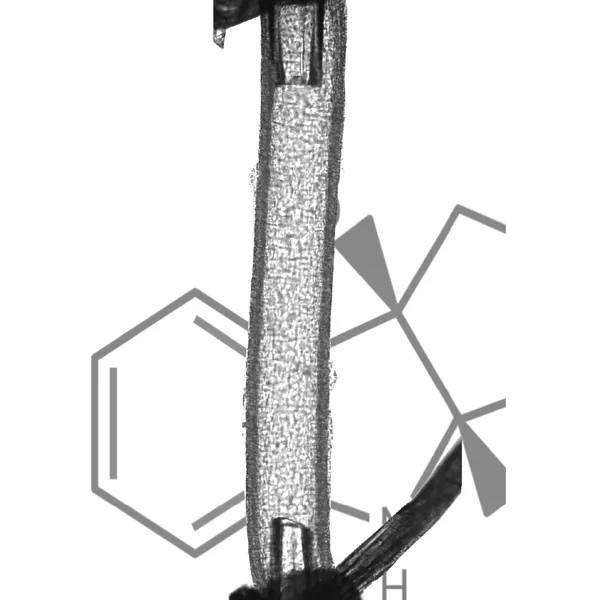
HRI researchers who presented at the Symposium included the following.
- Prof David Celermajer, Clinical Research Group – Starting a MedTech company from Australia – Process and pitfalls
- Prof Geoffrey Strange, Clinical Research Group – BIG ECHO DATA and AI: Tackling unconscious clinical bias
- Dr Chia Lun (Mike) Wu, Thrombosis Group – Ischemic endothelial necroptosis induces red cell hemolysis and COVID-19 microangiopathy
- Dr Samuel Baldwin, Microvascular Research Unit – Marked oestrous cycle-dependent regulation of rat arterialKV7.4 channels driven by GPER1
- Mr Cameron Trought, Thrombosis Group – Developing novel anticoagulants for stroke therapy
- Ms Ivy Guan, Cardiovascular-protective Signalling and Drug Discovery Unit – Uncovering hidden potentials of dietary natural products via chemical proteomics: a novel avenue for druggable target discovery in stroke intervention
- Ms Weizhen (Eva) Li, Atherosclerosis and Vascular Remodelling Unit – Colchicine promotes atherosclerotic plaque stability via the Notch3 dependent modulation of smooth muscle cell phenotype
Thank you to all who attended and congratulations to all the recipients. See you next year!
